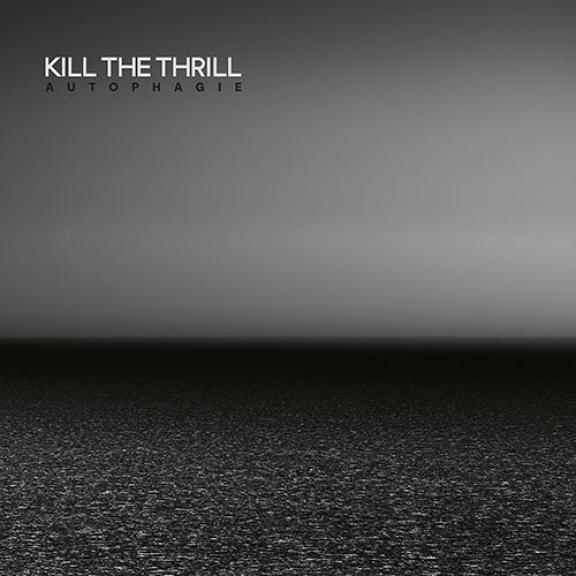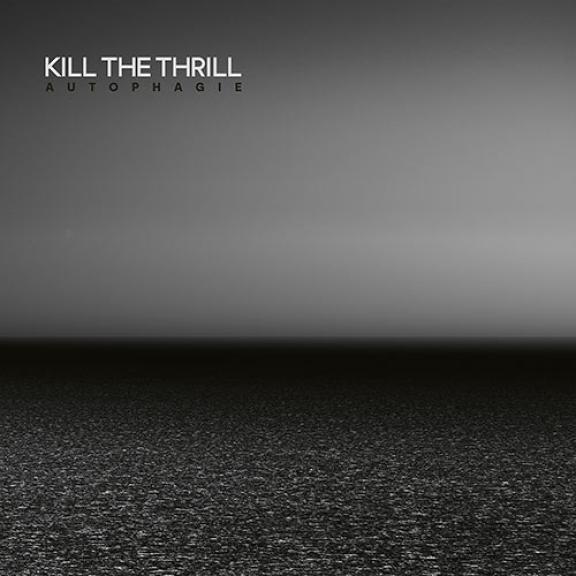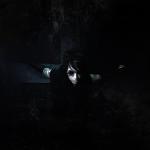Kill The Thrill have the peculiarity of being a discreet band with an imposing sound. Hardly prolific, the Marseilles-based band released four albums between 1992 and 2005, to which we can add the reissue of their early work under the title 1989 in 2015. Over the years, the band founded by guitarist/vocalist Nicolas Dick and bassist Marylin Tognolli has evolved from the raging, chaotic industrial metal of its early days to compositions that are more melodic, but also heavier, inspired by post-punk experimentation, frequently evoking Swans or The Young Gods, without ever losing its strength or personality. Nineteen years after Tellurique, whose heaviness we appreciated, Kill The Thrill returns as a trio, with drummer François Rossi joining Nicolas Dick and Marylin Tognolli for a fifth opus to be released this year: Autophagie.
With its artwork projecting us into the infinity of gray, Autophagie immediately reconnects us with the tension that has always been the band's trademark. The album is marked by cold samples, even if they are mostly in the background, instilling an anxiety-inducing atmosphere. The guitar is alive and well, strong and incisive, struggling noisily in the midst of the world, searching for something else, accompanied by the equally organic rhythms of the drums. Nicolas Dick's vocals are a pleasure to rediscover with their rocky power, it works wonders on the tracks where he's most torn apart. The guitar and vocals intensely convey the emotion of the struggle to live through the destruction that haunts the lyrics. You're left tense from one end of the album to the other.
It begins with a long intro, the promise of Tout va bien se terminer, yet the anguish only grows as the icy electronics build until the guitar enters the scene; it ends with Ahan once the guitar has fallen silent, another cold track, but reassuringly, this time. In between, we rush forward, desperately seeking another horizon. The second track, À la dérive, is the most violent on the album, as well as the most mechanical, and is particularly appreciated for that. This rage is echoed later in the album, on Clusterheadache and the more bitter Je suis là. In a very different way, we're seduced by the federative Capitan with its brass instruments, all the more so as it has been endowed with a beautiful video, as well as by the glittering darkness of the title track. We're a little less convinced by the album's longest track, the softer Le dernier train, but at least it surprises us with its sounds.
Autophagie is an album of great depth, originality and power. Admittedly, we do miss the oppressive character of Tellurique, but this was clearly not the band's state of mind here: Autophagie is a combative album, which certainly hurts itself, but does so to keep itself alive.





